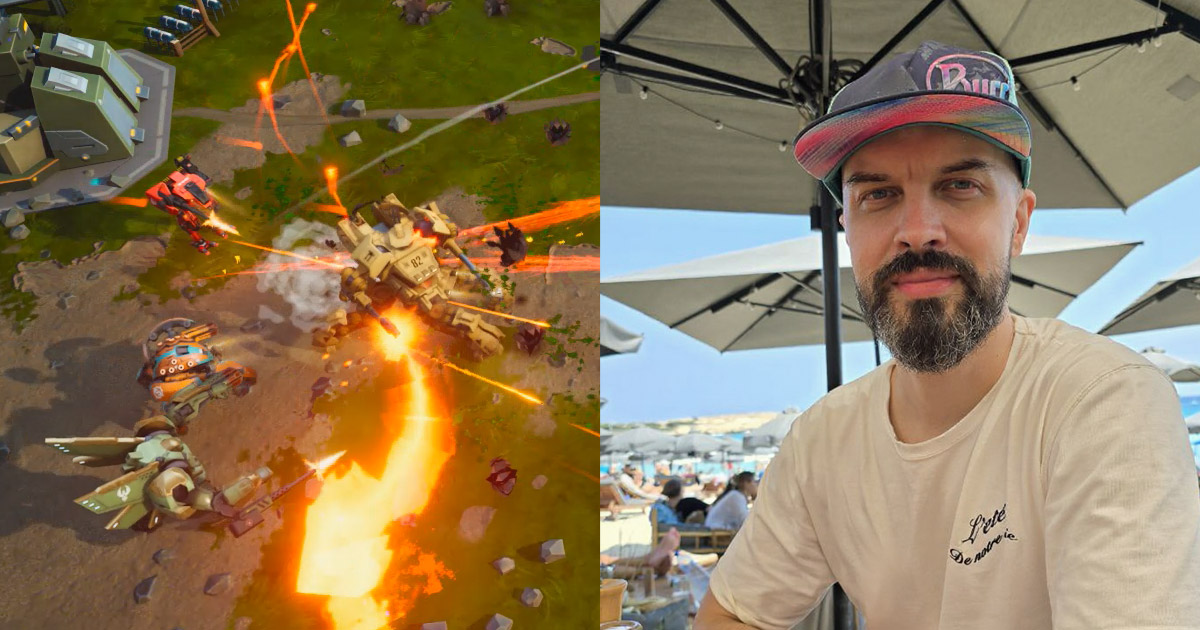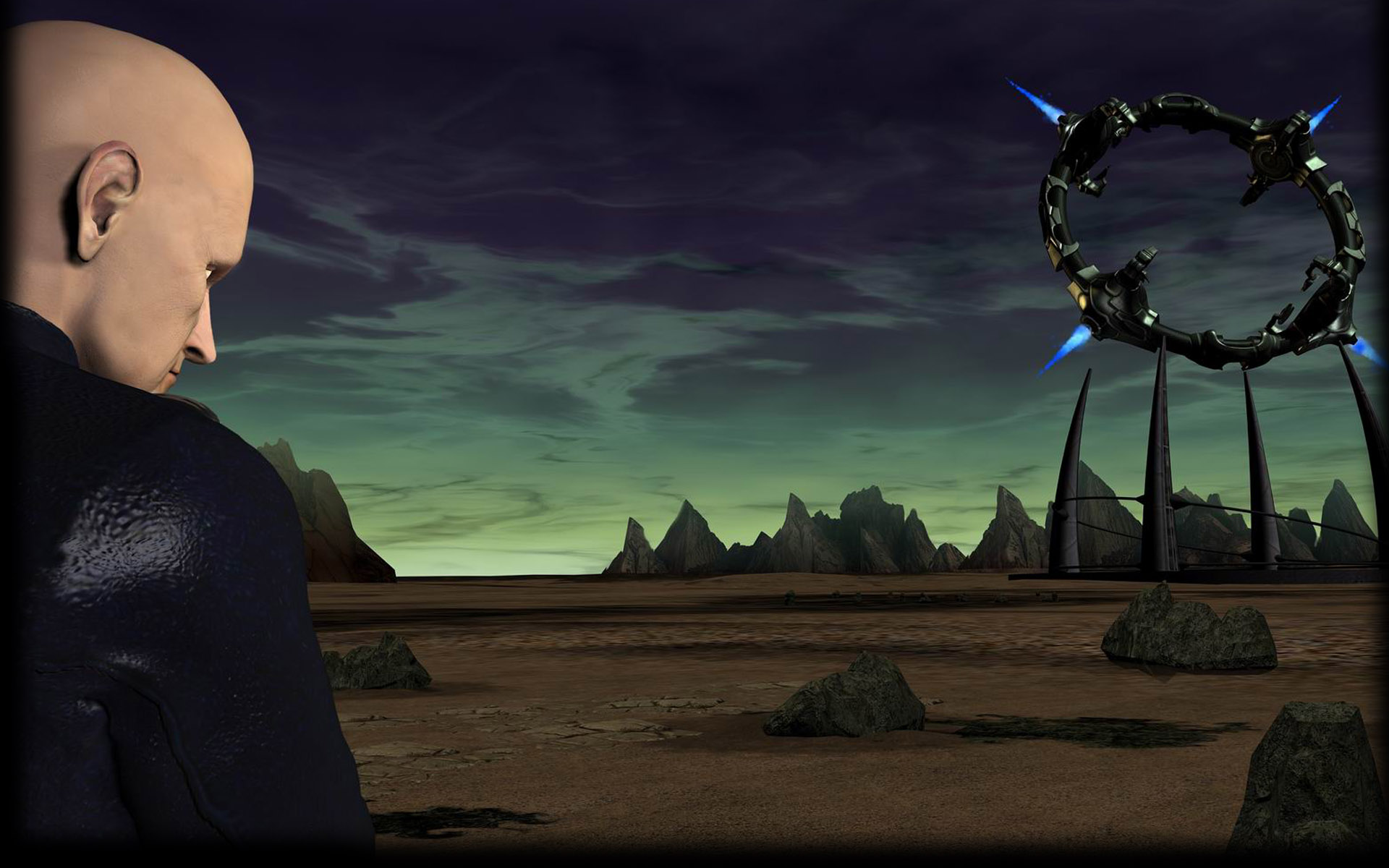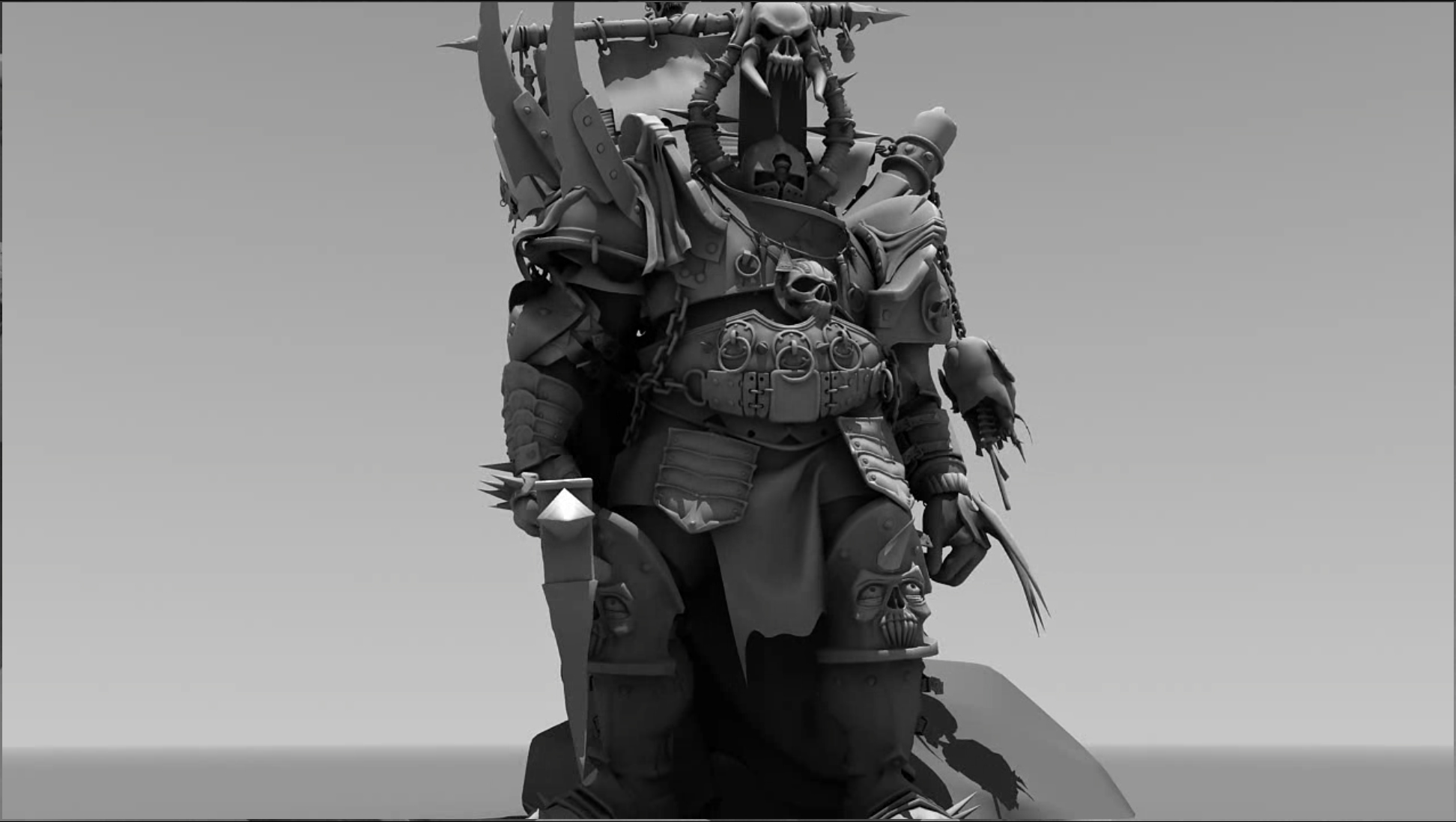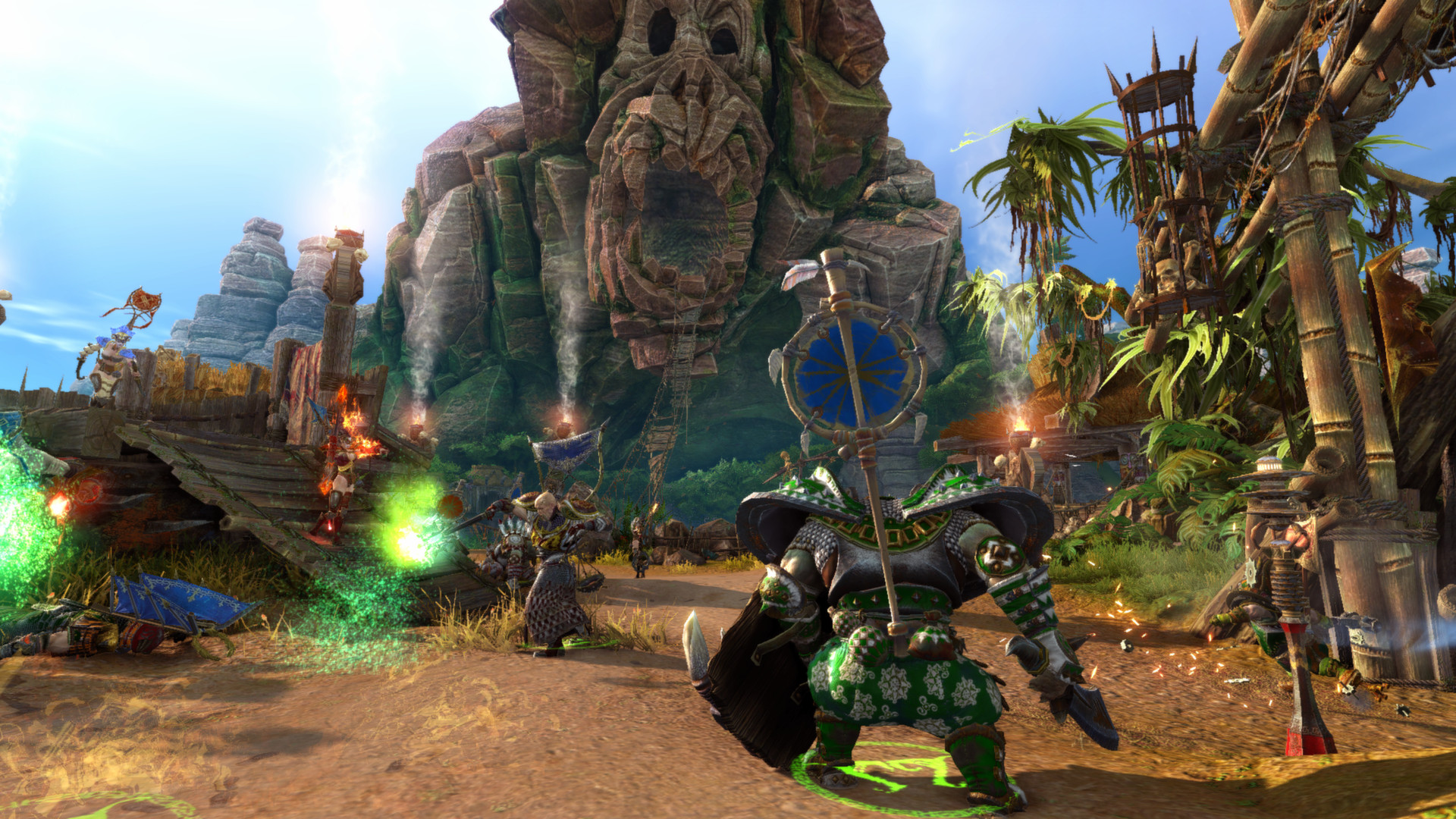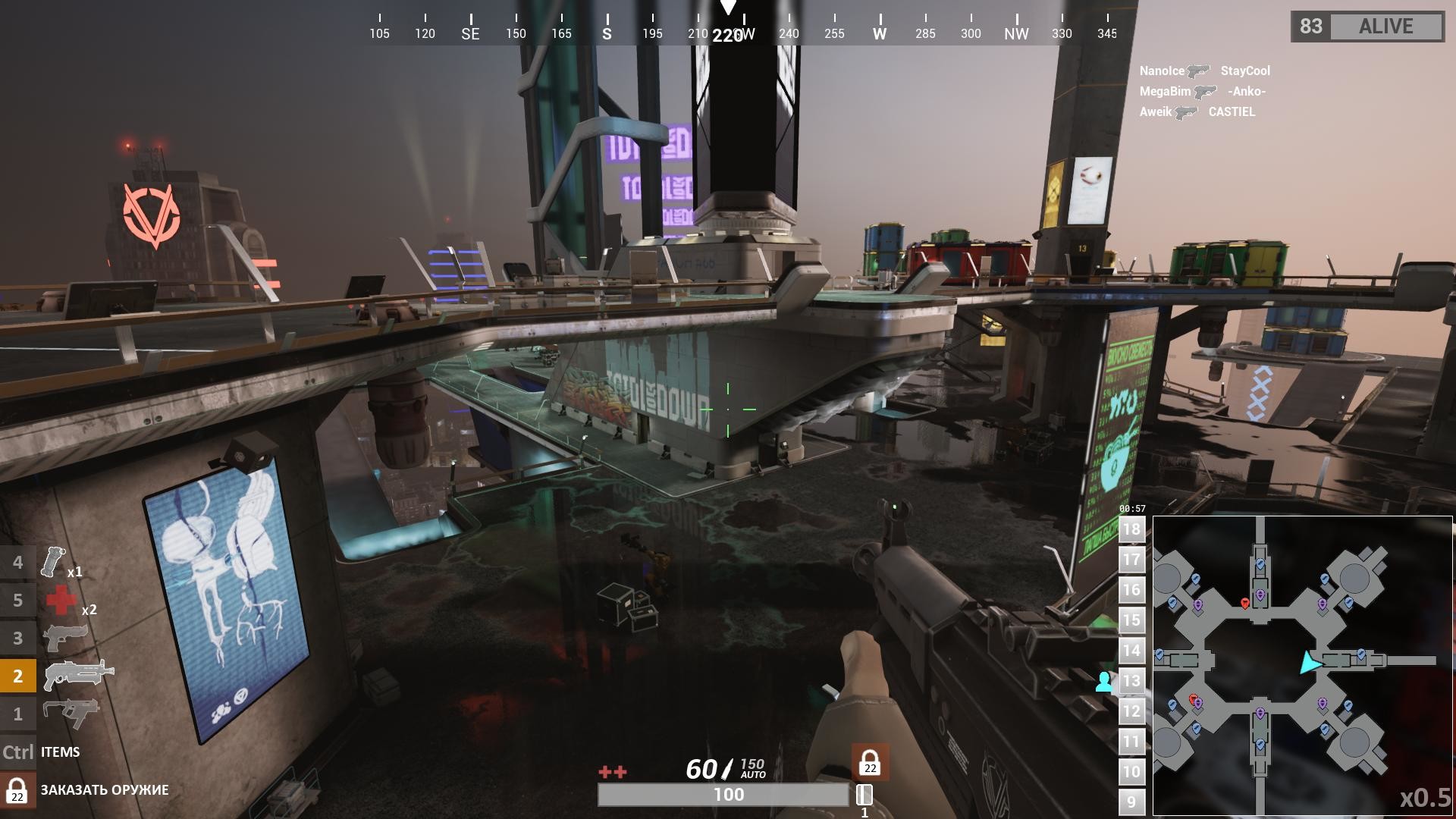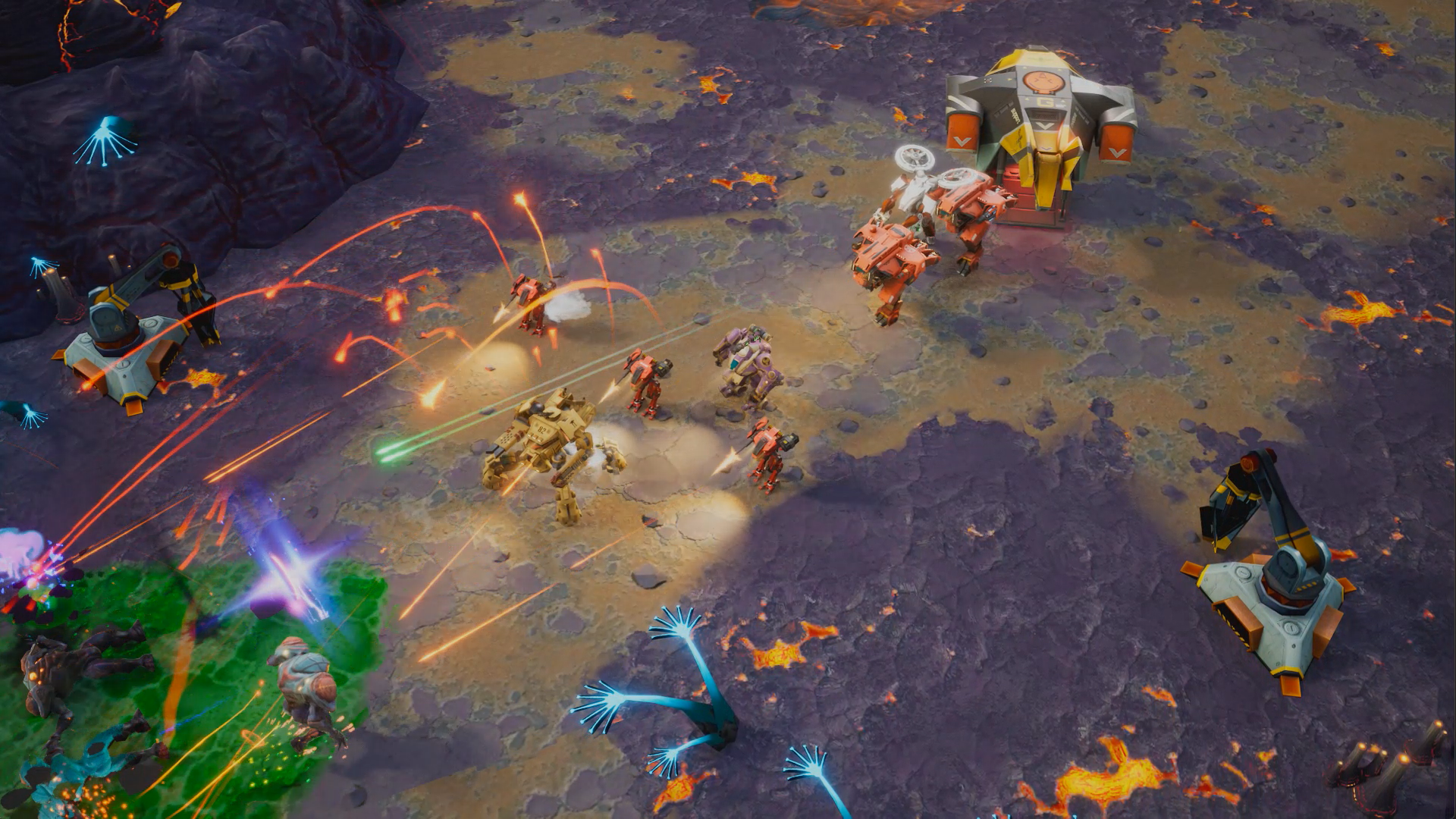"Up until the age of 30, I never looked at game development as a business," Dmitry Morozov from Rightsoft Labs on his journey in the industry
We’re launching a new interview format — extensive personal stories. We begin with a conversation with Dmitry Morozov, who has been in the industry for over 25 years. He co-founded Panzar and worked on games like "Vangers," "Perimeter," "Dungeon Cleaners," and "Fight Club." Currently, he is the co-founder and creative director of the Cyprus-based studio Rightsoft Labs, which recently released the mobile battler Mech vs. Aliens. We talked to Dmitry about how funding for development was attracted in the 90s, why the creators of Combats.ru failed to create their own World of Warcraft, and also, what’s wrong with publishers.
Dmitry and his new game — Mech vs Aliens
We call Dmitry on a Monday afternoon.
Alexander Semenov, App2Top: How are you feeling right now?
Dmitry Morozov, Rightsoft Labs: Tired. It’s an eternal exhaustion kind of mood.
When was your last vacation?
Dmitry: A long time ago. They’re kicking me out. I said, let me finish one feature, and then I'll take a break.
But after polishing one feature, you started refining another one?
Dmitry: Yes. It’s always like that. In the end, you don’t go anywhere. Something's always happening. There isn’t a spare minute.
What about delegation?
Dmitry: I delegate whenever possible, of course, but everything needs to be controlled.
You do realize that with service projects this can go on indefinitely?
Dmitry nods sadly.
You’ve been in the industry since '97. That's almost 30 years. How is it being an industry veteran? What do you think about all these years?
Dmitry: The main thing I’ve learned is that I love making games.
Any specific aspect?
Dmitry: No. I enjoy graphics, gameplay, everything. Moreover, over all these years, I’ve never lost my enthusiasm. Quite the opposite. My passion for development has only intensified.
Sounds great. What's the secret?
Dmitry: I have a goal that I haven’t achieved yet. I want to create a hit that will be featured at big exhibitions and shows, one that everyone will talk about. Since I haven't done that project yet, I’m driven to keep moving forward, trying different approaches.
And you don’t get tired?
Dmitry: No.
Could your unwavering interest in development be explained by the fact that you changed fields numerous times during your career? You started as a cinematic animator.
Dmitry: Absolutely. Many professionals say and write that to keep your interest up, you need to constantly change your focus. I notice that about myself too. Over the years in the industry, my area of responsibility has been constantly 'floating'.
And the goal was also 'floating'?
Dmitry: Yes. It all started with us making game cutscenes. Back then, the dream was to be like Blur Studio. This is Tim Miller’s studio. Now it is known for the anthology "Love, Death & Robots," but back then it was making cinematics. For instance, it did cutscenes for Quake III Revolution, Grand Theft Auto III, and Return to Castle Wolfenstein. So, we wanted to be a studio focused only on cinematics. At that time, the focus was on figuring out the production of cutscenes and building expertise in editing, storytelling, rendering, texturing, compositing, and more
Did it all work out?
Dmitry: Yes. At one point, we were doing cutscenes for all the major Russian releases.
Tell us how it happened? You were quite young when you entered the industry. How old were you back then?
Dmitry: About 16. I hadn't even enrolled in university back then.
Amazing. What did you have to do in 1997 to find yourself in the game dev industry at such a young age?
Dmitry: Simply communicate with people, write. I started writing to various studios, offering my services.
And they replied?
Dmitry: Of course. One of the first to respond was the guys from KD Lab. I showed them examples of my work, explained what I was capable of. They asked me to create special effects for their game — for "Vangers". They needed explosions before the release. It seemed a bit unserious to me at that moment, but I didn’t turn up my nose because it was my first job. I did everything, they liked it, and they started recommending me to other game studios.
So you built your first studio Ariorh thanks to your early earnings from working with KD Lab and other studios?
Dmitry: Approximately. However, it's important to mention that I started teaching at the Realtime school of 3D graphics before launching the studio.
Despite your age?
Dmitry: I was taken on a gamble. Both the school and I were in doubt. But we decided to give it a shot. Eventually, the courses I led became very successful. What’s more important: they gave me a lot. First, thanks to teaching, I grew rapidly as a professional. Second, among the students, I found my first partners with whom I launched the studio. Third, specialists from film studios and game teams regularly visited our school. They saw my level and offered projects to implement.
Am I right in understanding that you didn’t initially have a business mindset? You started teaching, ended up with amazing students with whom you didn’t want to lose touch, received orders, and it all took off? In a sense, did everything fall into place naturally?
Dmitry: Approximately. At some point, someone approached me with money and said, let’s do this? I started thinking about which of the students I could work with, began calling them.
You mentioned that someone came with money. How did that look back then?
Dmitry: Looking back at how things worked at that time, it seems unbelievable to me now. It may sound like fantasy now, but back then it looked something like this: a client came and said they needed something done for a certain amount of money. How you would accomplish this, they didn’t care. Like: here’s 30,000 dollars, make this many videos with it. The money was handed over in cash: you’d go to an office, they’d give you a bag of money, you’d take it and leave. Then you’d put the money in a safe from which it would be allocated to various purposes — rent payment, purchasing equipment, salaries. No contracts, everything based on trust.
Still, by then it was a business. How did you view the situation at such a young age and learn management? Or did everything happen more intuitively: you assigned tasks to team members and that was it?
Dmitry: The understanding of what business is came to me much later. Up until I was 30, I didn’t see it as a business. There were orders that brought new challenges, and that's how we grew naturally.
Dmitry was also responsible for the opens in Perimeter
When did everything change? What made you view processes differently?
Dmitry: Working with the "Fight Club" development team. At one point, team Ariorh joined them.
Wow, they bought you out?
Dmitry: More like hired us. In the mid-2000s, Lucius Group decided to develop their own World of Warcraft. They needed cool cinematics for it. Their guys, impressed by the Realtime courses, recommended us to their management. The management didn’t hesitate long, saying: "Let’s hire them, how much money do they want?" At that time, we were doing what we liked. So, we set a condition: we’d make the cinematics only if the salary covered our entire existing income. They agreed to the condition, and so we joined their team to make cinematics.
What changed you while working with Lucius Group?
Dmitry: We worked for a year making cinematics and then realized there was no actual product. Of course, it wasn’t a sudden revelation. The deeper I delved into the processes, the more I understood that the game development was stagnant. I wanted to fix that.
Why did you need to fix it? You were doing cinematics before. You could have shrugged and gone back to making ordered cinematics independently.
Dmitry: At that moment, I had a mindset: if we associate our name with a specific product, then not only should the cinematics be excellent, but the product itself should be of high quality.
So you got involved in development?
Dmitry: Yes. And the more I delved into it, the more problems I noticed. For instance, the management had highly unrealistic expectations. They believed we could create a product on par with World of Warcraft with the team we had. We tried to explain that Blizzard's game was in development for about five years by an experienced team well-versed in the genre. In response, they said World of Warcraft had simplistic graphics and that we could do much better. However, we had neither a finished engine nor tools. Yes, a vast 16 by 16 square kilometer location was created for the project, but we placed objects in it via XML file. Implementing a feature, or any small change, took an indecently long time.
So while trying to find out why the game wasn’t coming together, you distanced yourself from cinematic creation?
Dmitry: I, along with my team, handled a number of technical aspects: animation, rigging, setting up all the characters, modeling, texturing, and so on. I essentially took responsibility for the project’s “packaging,” so the homemade engine would produce a good picture in real time.
You got involved in development, but I must ask: why didn’t the project succeed?
Dmitry: It lacked a clear direction. The game had a gigantic design document but no clear, understandable concept. The constantly changing documentation was just a list of mechanics without prioritization. This was compounded by the lack of a full-fledged engine and tools.
What happened next?
Dmitry: Considering Lucius Group’s financial resources, the development could have continued for another 10 years. Yet the team didn't know how to make projects and didn't want to learn. So at some point, we decided we’d had enough.
How long were you involved in development?
Dmitry: About three years.
How did you part ways?
Dmitry: On good terms. We simply said we didn’t see what prospects we could have in terms of product development. We left as a group, the same way we joined. We fulfilled all our obligations from our end.
How did the "Fight Club" team react?
Dmitry: They offered us a lot of money to stay, and were even willing to consider changing some processes, but we had already made our decision, plus we were burned out.
Regardless of the built processes, how was it working at Lucius Group? It was one of the richest gaming studios in Russia at the time.
Dmitry: Before or after, I never encountered a company where employees were treated so well. For example, if someone had a birthday, they’d get an envelope of money. Someone got married — same story. They regularly took people on vacation, hired chefs to cook lunches and dinners. We always had the best equipment, even our own motion capture. They tried to create ideal conditions for creativity.
But you left anyway.
Dmitry: Yes, because the processes likely wouldn’t change, and we wanted to do everything right, considering all the mistakes we witnessed.
Did you leave knowing what you wanted to do, or were you venturing into the unknown?
Dmitry: Even before joining Lucius Group, we had an idea to make something brutal and fantasy-oriented about orcs. Ideally — something for Games Workshop around Warhammer. We even sent them our work. Unfortunately, we couldn't reach an agreement at that time. Then we engaged in MMORPG development for three years.
One of the first renders for Panzar (2001)
When you left the "Fight Club" team, did you return to your previous setting?
Dmitry: Yes, we all wanted to create something dark about giant orc battles. That's how Panzar came to be.
And how did you arrive at the idea to create a PvP product?
Dmitry: At that time, we were playing Team Fortress 2. We got intensely into it. So we decided to make a fantasy Team Fortress with heroes a-la Warhammer.
How many people did you have at the beginning of the project?
Dmitry: About 15 people.
Creating an online PvP project with such a small team isn’t the most obvious choice.
Dmitry: Back then, it didn’t seem too difficult.
Given that you’d previously been involved in developing a full MMORPG, the project might have seemed simple indeed.
Dmitry: Exactly. The idea was to create a game with a set of small arenas and different characters. You could say we wanted to make a significantly simplified third-person MOBA.
As I understand, this was around 2008-2009? Did you fund Panzar with your savings or attract investments?
Dmitry: We couldn’t have done it on our own. At its peak, up to 100 people worked on the game.
You previously talked about attracting development funds in the late 90s. How did things go in the mid-to-late 2000s? Did acquaintances with suitcases come in, who liked your vision?
Dmitry: I think many things still happen this way — on a personal interaction level. Developers meet people who can give them the opportunity to realize a product. Trust develops, often based on the strong belief of the former in their idea. At that time, we were very confident in our strength and Panzar's concept. We knew we wanted to create a cool project and how to do it.
Were these profile investors?
Dmitry: No. They were acquaintances of one of my partners. They had spare money and saw that the gaming industry was thriving at that time. Through us, they tried to venture into game development.
How long was the game in development?
Dmitry: Probably about two years from start to initial release, six months of which we spent on pre-production.
That’s pretty fast.
Dmitry: We prepared the pre-production working from home. At that time, we were also searching for people. When we moved into an office, we had already finalized our core team and had a completed design document. We understood that we would make a modular product that we could easily scale and which would be built upon both content and functionality over time.
Was it easier or harder to find people back then?
Dmitry: It was just as hard as it is now. For instance, we searched for a game designer for a long time. We must have gone through about 200 people. We faced the issue that many knew everything in theory but couldn’t do anything. You'd hire someone, and they’d either turn out to be fibbing, or disappear when faced with complex tasks. Eventually, we hired someone who had never worked as a game designer. He was a good accountant who loved playing games. It turned out simpler to hire and train such a specialist than to get results from so-called professionals.
The open beta testing of the Russian-language project version began in April 2012. How did the launch go?
Dmitry: We launched in, what’s now called, early access. We created a small game slice, let players in, observed how they played, marked growth points for ourselves, and made the next version. Essentially, Panzar developed this way in the following years. We tried to constantly elevate it with the community.
Panzar
What went wrong?
Dmitry: We neglected many nuances. For instance, at the time, we didn’t know how to monetize a free-to-play product properly. Essentially, throughout Panzar’s operation years, we were learning this. Also, we made a mistake much few make today. We heard and listened only to the hardcore community that loved our game. We completely ignored how new players perceived the game. As a result, we had huge retention difficulties with new audiences at the game’s launch. And we ignored this. Instead, we worked on retaining core-users, constantly making content for them. We endlessly polished the endgame, without caring for the first hours of gameplay. I think that’s one thing that kept the game from becoming super popular.
Yet it was still popular in Russia. What metrics did the project reach?
Dmitry: In Russia, we had 8 million users. I can’t recall the exact online count, but it peaked in the tens of thousands.
However, it never really reached foreign markets. Why?
Dmitry: We launched on Steam too late, initially thinking our monetization would be poorly received there. It was pretty harsh. We attempted to enter China with the help of Perfect World as a publisher. There was a moment when they planned to launch us parallel with Dota 2. Unfortunately, it didn’t work out.
What about the US and European markets?
Dmitry: Even before China, we tried to launch in the West on our own. We ended up encountering not-so-honest people who flooded the project with fake traffic. We couldn’t track fraud. Money was spent, but players didn’t increase. Incidentally, this led me to mobile, where everything is much more transparent.
Then what happened? Wasn’t there interest from Western publishers?
Dmitry: There was, but they disliked our self-financing. When we talked to them, we said we only needed to be released. They’d say: "Don’t you need money?" We’d say: "No, we have everything, just release us in a particular region." Usually, we’d then receive a refusal in some form.
What was the problem?
Dmitry: I’m confident they were unsatisfied because they had no control over us and the product.
Here’s a question: Did Panzar turn a profit?
Dmitry: At the beginning of our conversation, you asked about business. I think I began to understand what it is and how it’s formed during Panzar’s development. We were posed with the question of how to earn money from the project, how to figure out the math. The problem was we started thinking about monetizing the players in our project too late.
Nevertheless, the project was actively operated for four years. It released a huge amount of content. From what you’re saying, much was learned during development. So, why did you decide to shut it down in the end? It’s free-to-play, so it can be endlessly tuned.
Dmitry: I think we got tired. By 2017, we had been working on it for quite a while. So there were talks in the team that it was time to move on. The mood wasn’t very positive. Plus, everyone knew there was no funding for a full launch abroad, and finding partners failed. Therefore, we decided to try something entirely different with the remaining resources.
Was this "something different" Total Lockdown?
Dmitry: Yes, we tried to tap into a trend with it. PUBG was on everyone’s lips then.
What kind of project was it?
Dmitry: It was a battle royale about shootouts in a skyscraper. The concept was that prisoners were brought to the roof, scattered through the building, and looted. Then gas forced them to a particular floor.
Total Lockdown
How long was it in development?
Dmitry: It reached a fully working version in about a year. Overall, we spent two years developing it. The team also switched engines. We made Panzar on CryEngine, and Total Lockdown on Unreal Engine.
I only learned about Total Lockdown while preparing for the interview. It amazed me. It was a complete AA from a Russian team that no one knew. What went wrong?
Dmitry: I believe there were two key mistakes — unsuccessful stylistic choices and a complete lack of marketing.
Why do you think the chosen style was a mistake?
Dmitry: We based the style on the Gorillaz. It didn’t catch on. I think partially because the game’s visuals, due to excessive adherence to the style, became very dull with predominant gray colors. When the game’s concept was still being discussed, we envisioned it as dark yet vibrant — akin to "Judge Dredd" franchise movies. Our heroes were fitting — robust convicts. Instead, we got a strange character roster.
You pointed out the marketing issue. As I understand, there simply wasn’t any money for it. But, once again, wasn’t there interest from publishers?
Dmitry: We didn’t really look for them actively, to be honest. It seemed like something was budding. However, at that point, resources began running out, plus the lockdown started. Consequently, layoffs began. Everything ended when only 5-6 people were left in a small room, then we all transitioned to remote working. And that was when I realized it was time to move on.
So you moved into mobile. Given your previous PC focus, it’s not the most obvious choice.
Dmitry: Mostly because of marketing. For instance, at that time, Steam didn’t allow proper pixel tracking to a product. By buying traffic to your page, you couldn’t track which specific campaign brought people to you. The mobile market is different. The purchasing model is transparent.
This was, as I understand it, 2021. You embarked on developing Mech vs. Aliens. What’s the game about?
Dmitry: Initially, it was an action game. We created a prototype in the spirit of Brawl Stars, where players controlled a robot directly. We measured CPI, conversion, and so on. It turned out that our project hosted a casual audience: the traffic quickly dissipated, sales lagged, and LTV collapsed on day 10-14. We examined the audience, analyzed what they preferred, how best to monetize them. Eventually, we decided to shift away from the action game concept — figuring it had more of a youth angle — and leaned towards semi-automated gameplay. Thus, we arrived at the Battler RPG Action concept.
Mech vs. Aliens
Kind of like Hero Wars?
Dmitry: Not quite. For example, in our battles, the location you play on matters. Imagine if in Hero Wars the opponents didn’t stand directly opposite each other but at some distance, and they need to fight considering the terrain.
You don’t seem to seek easy paths. Battler games have many pitfalls.
Dmitry: Yes, indeed. We understood that when we began development. You could say we entered the niche fully prepared. Although we hadn’t made such projects before, we had a good grasp of the project’s specifics, what we needed to consider.
Yet you developed the game for four years. It’s only recently been released.
Dmitry: Consider it as making two games in that time. We created the action game in a year, released it to stores, integrated advertising, analytics; generally, we gained the necessary mobile experience. Then, on its technical base, we made the battler. Also, don’t forget the pandemic and relocation — they significantly affected timelines.
Why decide to release independently, without a publisher?
Dmitry: There are several reasons. First, I don’t trust the competencies of those who evaluate your project. I’ve often encountered situations where you have a high-level discussion with someone, come to agreements, then they appoint someone to assess the product, who is incompetent, but you’re dependent on their assessment. Second, nowadays publishers are only interested in super-successful projects. Yet, if I have a super-successful project, why do I need a publisher? Third, some projects are inherently unable to be super-successful, limited by their niche. Their only option is to work independently.
Fair enough. Let’s wrap up then. What are your plans?
Dmitry: To ensure Mech vs. Aliens becomes popular among mech and giant walking robot fans so that everyone knows about the game, loves its gameplay, and its success allows us to take on a larger, more ambitious project.
That’s an excellent plan! I wish you and your team all the best in achieving that!
